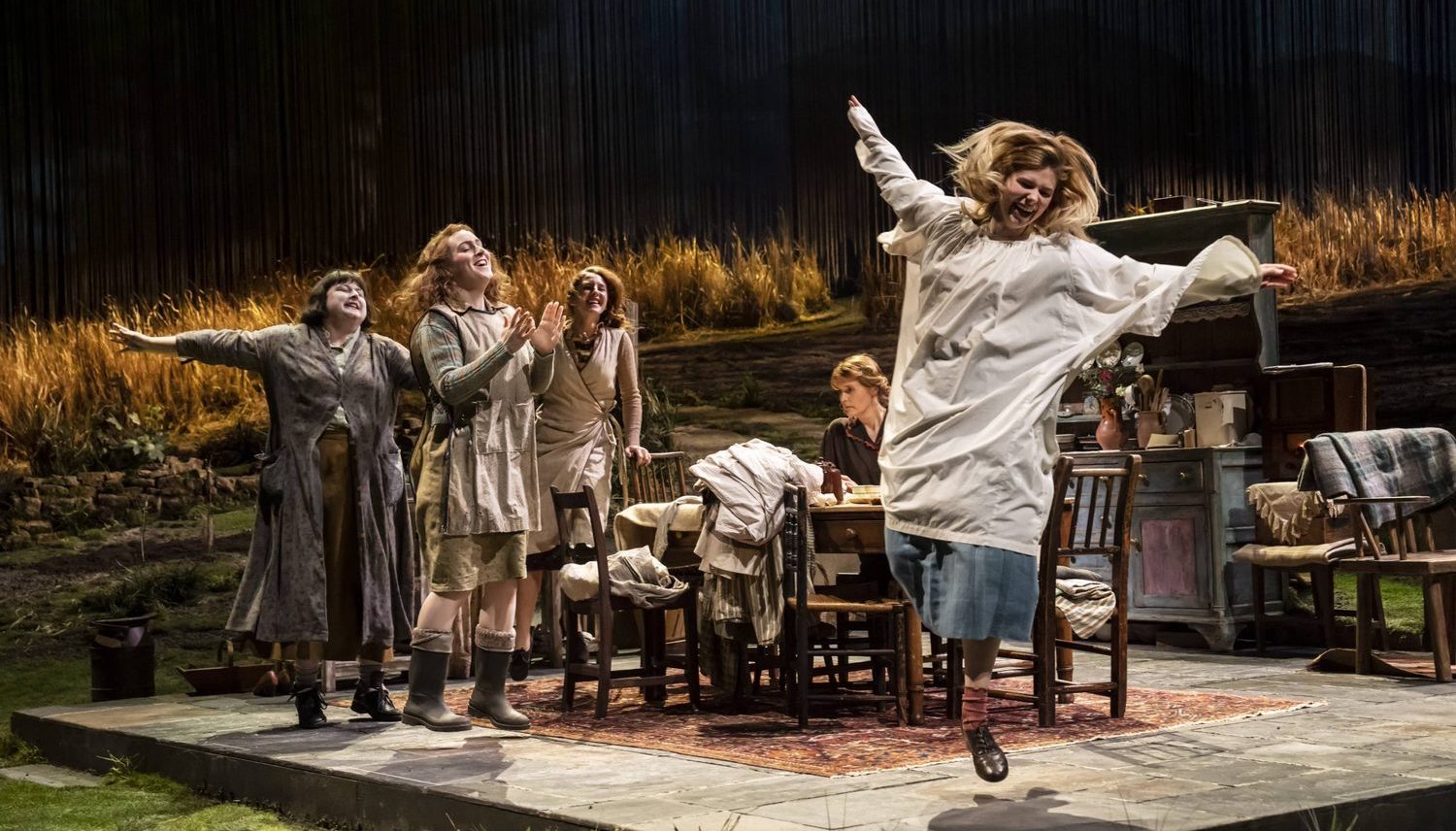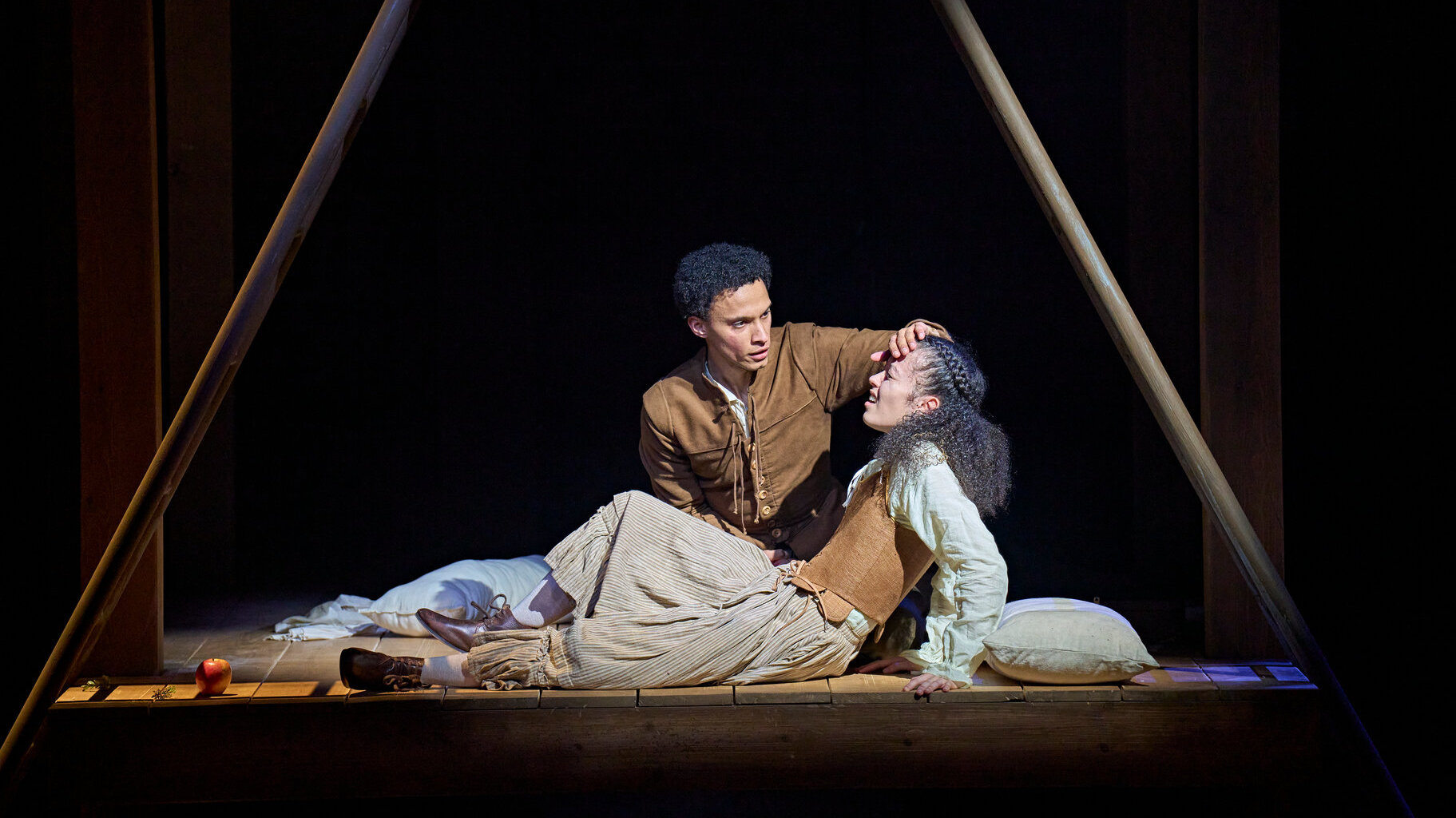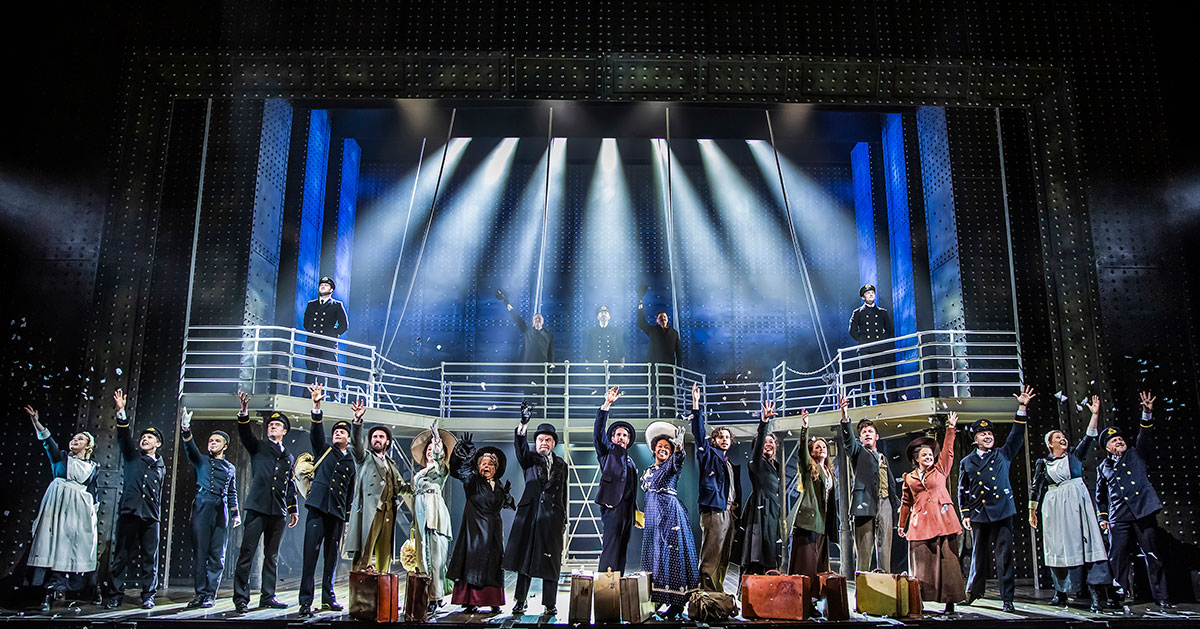
The musical 42nd Street ran for five years at Drury Lane from 1984 and has been regularly revived for regional tours and West End outings ever since, so it is no surprise to find the latest production arriving in Woking on a tour that will last well into 2024 (with a Christmas trip overseas to Toronto) and to find another full house of fans looking for an entertaining feelgood night out. The real delight is that the leading lady Nicole-Lily Baisden, playing Peggy Sawyer, the chorus girl who makes good, is absolutely brilliant in her movement and dance and outshines the bigger names in the cast. Just as the 1984 West End production discovered nineteen-year-old Catherine Zeta-Jones, this production may have revealed another huge rising star of musical theatre.
Its Jukebox musical format, using a 1933 film as a base and adding other period songs, is a formulaic and cliched ‘show within a show’ story with a simple plot of a chorus girl who makes good. It succeeds due to an excellent well-drilled Ensemble, sparkling performances from the leads, slick scene transitions and elegant glittering costumes, with an energetic execution throughout and music that sweeps you along in a toe-tapping evening that is simply irresistible. Of course, the really big tap routines live long in the memory and the choreography feels fresh and exciting.



%20Crazy%20For%20You%20at%20the%20Gillian%20Lynne%20Theatre.%20Charlie%20Stemp%20and%20cast.%20Photo%20credit%20Johan%20Persson.jpg)

%20Lily%20Allen%20(Katurian)%20in%20The%20Pillowman%20(photo%20by%20Johan%20Persson).jpg)




.%20Photo%20credit%20Ellie%20Kurttz%20(2).jpg)








